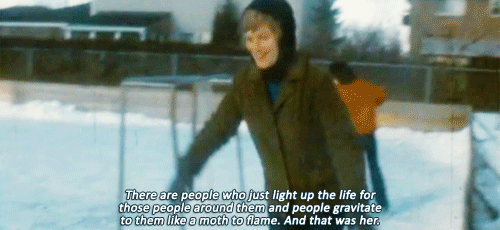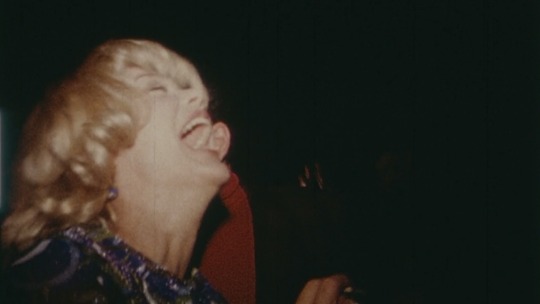Sarah Polley’s Stories We Tell is an example of a first-person reflexive documentary which chronicles the reclamation of her story of origin through stories being told by her family and  biological father. Unlike the traditional documentary form, Sarah is the subject of the film she is directing and has a key role both behind and in front of the camera.
biological father. Unlike the traditional documentary form, Sarah is the subject of the film she is directing and has a key role both behind and in front of the camera.
Her pursuit of knowledge is part of the adventure that the stories take us on as she interviews her siblings, her ‘father’, her potential father, and her biological father. They recount stories about Sarah’s mother, Diane, who passed away when Sarah was 11 and try to figure out who Sarah’s father really is.
In an interview on CBC’s Q, Polley says that she wanted to create a film about storytelling, but didn’t intend for herself to be the subject. She did not want to accept the different perspectives she was hearing on the same story, so she tried to compile all of the stories into one place and see what overlapped and how she could piece together information about her late mother.

When she says, “we can’t all be right and we can’t all be wrong. So we must be unintentionally distorting things to varying degrees in order to feed our own version of what we need the past and history to be, and in our way, we must all be telling the truth as well”, the audience realizes that all of the participants are telling what they remember to be true, and that each story helps to put together the real origin story. Sarah says in her interview that her biological father originally wanted to tell this story, but that this was Sarah’s story to tell. The nature of the film is informal because she is interviewing relatives and people close to her mother rather than interviewing strangers. “Because the film was so much about storytelling and how stories are constructed, it would have felt really false to me to leave out the fact that I was constructing this story — and that this, in itself, was very subjective” – Sarah’s involvement in her film makes the documentary a subjective decision that she was able to manipulate and create a final product that she thought best reflected the story that she was able to gain authority over throughout her extended interview process. It is also subjective because the stories of Sarah’s mother cannot be qualified by Diane herself. When Sarah interviews her siblings and father candidates, the wall comes down and true feelings are made visible which changes the way she interacts with these people that she considers to be her family.-SNOW.gif)
The fact that her brother thought something was off because Sarah looked different and that he knew about the affair his mother had affects the relationship that these siblings have. Sarah’s research process ends up with her discovery of information that was withheld from her or that she thought was said in a joking manner.

The inclusion of genuine and fabricated home videos is a film technique that Polley uses to blur the line between fact and fiction while providing visuals that mislead the audience. These fabricated videos affect the way that the audience is able to respond to the events in the film because she is tricking those who are unaware of whether or not the images and clues are accurate.
Sarah’s sister asks why anyone would care about their family and why this film-making process was necessary. So many cultures share stories and rely on oral tradition to keep stories and subjects alive – by documenting all of these stories, not only does Sarah find answers about who she is (and who she almost wasn’t), but she is able to connect with her mother and keep her mother’s spirit alive. Just because the Polley family story isn’t the same as our own stories, the realism of sharing memories and perceptions allow complete strangers to feel a connection and sense of accomplishment when Sarah learns the truth about her biological father.